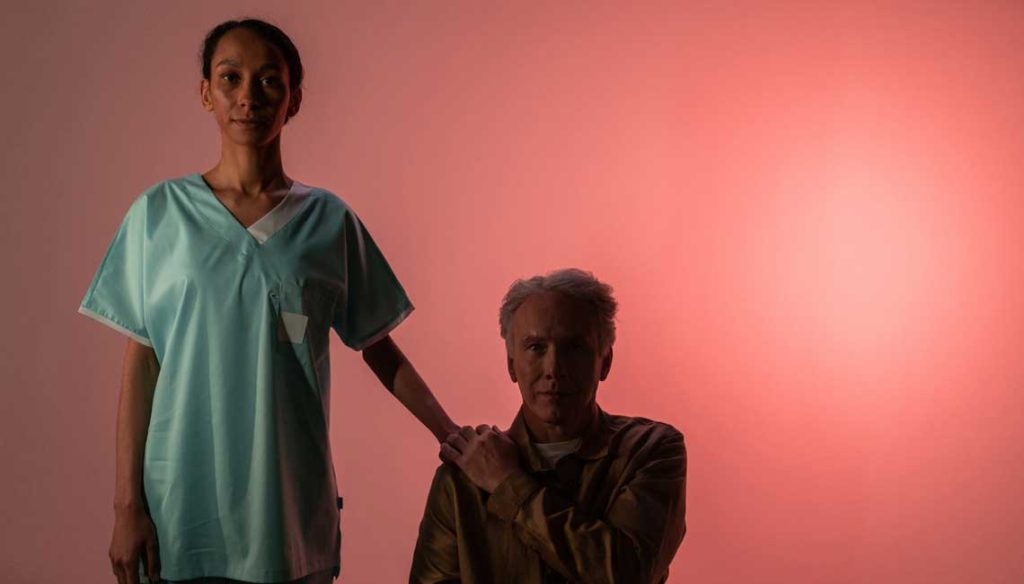
No school teaches that love is the most important thing in life and no university teaches that compassion is the most important thing, so I aspire to develop a medical curriculum that has teaching compassion among its priorities.
Dr. Patch Adams
Nowadays there is an increasingly widespread culture of acceptance of death when it comes to terminal patients whose conditions can no longer be treated with advances in medical science. In those moments, many people affirm that they want to spend their last days assisted in their physical needs, enjoy the company of their loved ones, order pending issues, and surround themselves with a spiritual environment outside the hospitals where they are treated.
There are several books that deal with the subject and the health system in the United States has legalized hospices for the end of life in almost all states. These spaces emphasize caring for people instead of curing their illnesses. They are a refuge for those who wish to have peace and comfort in the last days of life.
A way of treating patients that are not only found in hospices designed for that purpose. More and more hospitals have implemented spaces with properly trained staff, just as residences or nursing homes assist patients in these circumstances and more and more people in the United States are preparing themselves as caregivers for patients who may be their own loved ones. to spend the end of life in their homes.
This cultural transformation on the subject of death has an interesting story that we would like to share. It arose from the ideas of Dr. Elizabeth Kübler-Ross who came to the United States after having lived through the consequences of World War II in Europe. He had visited the liberated concentration camps and reflected on the consequences of such a genocide. He understood that the sick survivors required more help due to the physical, traumatic, and mental health consequences that had to be treated.
During his stay in various hospitals, he observed how death was considered a failure of medical science, and terminally ill patients were convinced that their situation could improve if they accepted high-tech medical treatment, leaving no opportunity to decide on their fate. life to the same patients who suffered immense pain and great sadness when they saw that their relatives avoided talking about their illness, evaded the subject of death, and never told them the truth about their condition.
That was the beginning of a new treatment that in the middle of the last century was unacceptable and misunderstood and consisted of assisting terminal patients, looking them in the eye, and sharing their loneliness, feelings, and conflicts when facing imminent death. Kübler-Ross transformed the process of dying into a humanitarian act and her long experience in psychiatric hospitals led her to treat mental health as a priority during the process of any illness.
With great efforts, she founded two hospices for terminal patients. In the 1980s, inspired by the beliefs of American Indians about transcendence and Buddhist philosophy, she created the Shanti Nilaya Nursing Home for the Elderly, which in Sanskrit means: the definitive home of peace, and later he created the Healing Waters Growth and Healing Center, on a farm in the state of Virginia. These spaces began as places of learning for spiritual growth, for the understanding and acceptance of one’s own death, later people lived there in the midst of medical care, love and compassion until the end of their lives.
Many volunteers, nurses, doctors, and mental health specialists, as well as nuns and priests from the Catholic Church, approached Dr. Kübler-Ross, to prepare themselves as caregivers of these patients and share the process of their illness as a compassionate exchange. Sadly, because most of the patients were treated for free and the hospices were supported by the charity, it was very difficult to support them, they also treated terminally ill patients with HIV and at that time the community that surrounded the hospices felt threatened by this wrong then unknown, so both spaces had to be closed. To know more visit the site: https://www.fundacionekr.org
However, the legacy of this great Swiss doctor remained in the hearts of her many followers after having worked with her and through the foundation that bears her name, today, she is dedicated to providing educational programs and therapeutic care all over the world. One of his disciples is Frank Ostaseski who in 1987 founded the Zen Hospice Project together with Martha de Barros, whose name comes from the Chinese Zen Buddhist philosophy, which favors meditation as a spiritual practice and daily work for the benefit of other people as a form of personal growth.
It emerged as a non-profit space for the improvement of life. He has trained caregivers, doctors, and nurses, as well as created a network of volunteers, advocates, advocates, and guides to deal with a terminal illnesses. It focused on caring for homeless people, people with addictions, and terminal patients with HIV and cancer. Located in the city of San Francisco, Ostaseski, along with other specialists, promoted the practice of meditation as a healing tool for patients and caregivers.
The premises could not be maintained for more than twenty years and seeing this situation, the Zen Hospice Project began to extend its powers by entering into an agreement with hospitals in the state of California to apply the same procedures to terminal patients in those institutions and allow access caregivers trained for this purpose. With this, the legacy has remained and although the premises have been lost, it became the Zen Caregiving Project whose volunteers actively listen to patients with an open heart, are fully aware of what they are experiencing, and, above all, serve them with compassion.
Today Frank Ostaseski, having faced the experience of a terrible illness, is also the author of the book The Five Invitations: Discovering What Death Can Teach Us About Living Fully (2017), he continues to train people to live and die fully. , through workshops, conferences, and links with other non-profit organizations, all to accompany people in the vulnerable and sacred moment of death. To learn more about this unique project and its creator visit: https://www.mettainstitute.org
Another of Dr. Kübler-Ross’s disciples and her co-author in several books and investigations is the famous writer David Kessler, who has focused on the experience of mourning the death of a loved one and associates it with frequent losses. that we live daily and that causes us constant duels. You have said that it is important to find the meaning of the pain we feel and give our emotions full space. He has emphasized that there is no time limit to living the grieving process with the learning that this entails, although it seems uncertain it can be a very productive experience. It has focused on caring for patients but also on caregivers and medical staff, who may feel exhausted at any given time and it is necessary to attend to their needs as well.
Due to various traumatic experiences throughout his life and experiencing the premature death of his loved ones, he has been able to have a full understanding of the end-of-life experience. Kessler affirms that death is not a medical event, it is a life experience that requires our full attention and acceptance in the face of what cannot be changed and says that it is always better to have a network of family or friends that allow living and healing the loss of a loved one. With it, both the deceased person and their loved ones find peace. David Kessler delivers his teachings and training virtually. To learn more about this author visit: www.grief.com
It may be that we find ourselves in the circumstance of having a loved one in a terminal patient situation or we ourselves face such a situation. We must think about what to do if we want to be treated in the hospital until the last day, or consider the end of life somewhere else.
Recognizing that death is near, we can consult with our physician or local office on aging. Go to the National Hospice and Palliative Care Organization, NHPCO, which has a list of online providers, where we will find different institutions in the state of Texas and throughout the American Union, certified by Medicare or The Joint Commission to practice legally appropriate care for terminally ill patients. Many of these spaces offer their services based on need and not on the ability to pay. Visit: https://www.nhpco.org
According to testimonies of people who cared for their loved ones at the end of their lives, being such a difficult and painful process, they had an incomparable approach, just by holding their hand, praying with them, meditating together, listening to their thoughts in silence and offer all the love possible, they claimed that it was a unique test of the truly transcendental. At Del Pueblo Funeral Home, we offer you a solid funeral planning program and personalized attention to avoid last-minute complications and make a delicate farewell, so we remind you that we make the most difficult moments easy. To learn more about our services visit: https://www.delpueblofuneralhome.com/es/plan-previsor/#why-pre-plan
